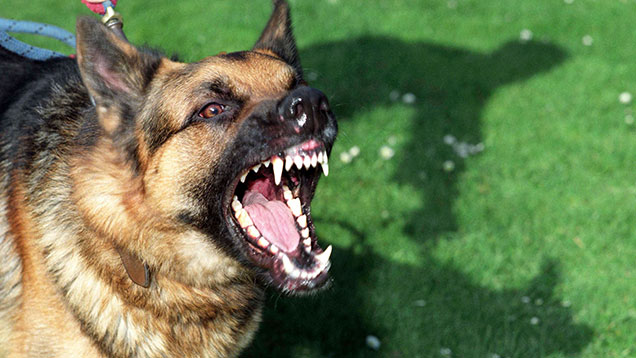Report all sheep worrying cases to police, farmers urged
 © Geoff Moore/REX
© Geoff Moore/REX Farmers need to report every incident of sheep worrying to police if a complete national picture of dog attacks is to be built up, according to the National Sheep Association (NSA).
Industry leaders and police agree that dog attacks on sheep are probably underreported across the country.
Yet sheep worrying remains a massive problem for sheep farmers, causing untold suffering to sheep and considerable distress to farmers and their families who have to deal with mutilated animals.
See also: Police reveal true extent of dog attacks on farming
Phil Stocker, NSA chief executive, said official incident figures suggested the number of dog attacks had fallen nationally.
Attacks which made the headlines in 2015
- 13 February Seven sheep mauled to death, four put down and 15 required veterinary treatment after a dog attack in their field in Louth, Lincolnshire.
- 6 April Eight cattle in Anglesey left with injuries so severe they had to be put down after two German shepherd dogs attacked them.
- 18 April A ewe and five lambs killed and more than 20 other animals injured after an attack by a dog at Morpeth, Northumberland.
- 28 April An attack by two dogs left 12 newborn lambs dead in Helston, Cornwall. Nine other lambs needed veterinary treatment.
- 30 April A total of 24 lambs, three ewes and a goose killed on a farm in Ardeley, Hertfordshire.
However, this did not tally with the number of calls the organisation was getting from members.
“Since Christmas I think the problem has got worse and the number of cases is going up,” he said.
“We’re getting quite a number of calls where two or three sheep are killed and then another five or six are maimed.”
See also: Your legal rights on shooting dogs on your land
Mr Stocker said the NSA was keen for farmers to report every incident of sheep worrying to the police, so a more accurate national picture could be obtained.
Producers should also fill out a short impact statement at the same time, to explain the emotional and financial consequences.
Tim Price, rural affairs specialist at NFU Mutual, said provisional claims figures for 2014 suggested nearly a 20% fall in sheep worrying cases across the country.
However, this came after steep rises in previous years and across the country the picture was very mixed.
“The South-West continues to suffer the highest number of attacks, no doubt because of its to its popularity as a tourist destination with north east England and the Midlands suffering the second and third highest number of attacks in 2014.
“There was particularly good news for Wales, previously a hotspot for attacks with claims down almost half in 2014.”
But he added: “We are concerned about a number of very serious attacks in north west and south west England in February this year which left dozens of sheep dead and seriously injured.
“It’s clear that there is still work to be done to drive home the message to the public that dogs must be kept under control in the countryside.”
